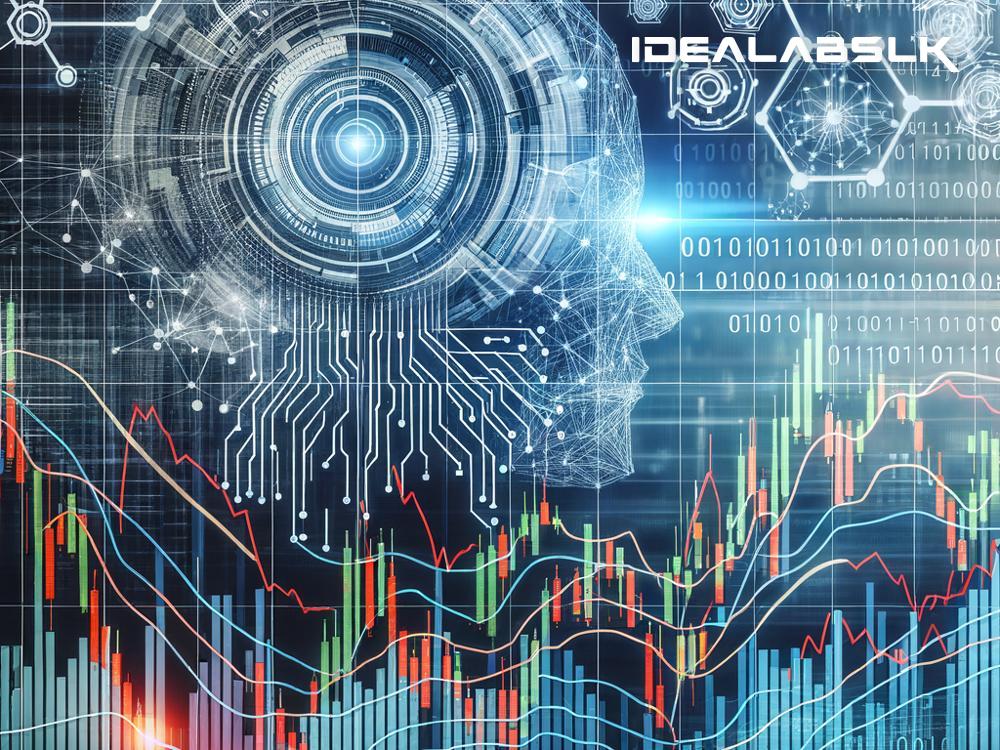AI for Trading: How Deep Learning is Improving Stock Market Predictions
In the fast-paced world of stock trading, every little advantage counts. As traders seek to make quick, informed decisions, they often turn to technology for help. This is where Artificial Intelligence (AI), and more specifically, Deep Learning, is making a significant impact. But what exactly are these technologies, and how are they changing the game for stock market predictions? Let’s break it down into simpler terms.
What is AI and Deep Learning?
Imagine you have a super smart robot friend who gets better at tasks the more it practices them. AI is like the brain of this robot, enabling it to learn, make decisions, and solve problems. Deep Learning, on the other hand, is akin to an intensive training course for the robot, making its brain better at understanding complex patterns. It's a subset of AI that mimics the way human brains work, using something called neural networks. These networks can sift through huge amounts of data, learning from them to make predictions or decisions almost as well as a human can.
The Traditional Way of Trading
Traditionally, stock market trading involved a lot of research, guesswork, and a bit of luck. Traders would analyze historical prices, company performance, and economic indicators to make educated guesses about what might happen next in the market. This process was not only time-consuming but also prone to human error. People can miss patterns or be swayed by emotions, leading to decisions that may not always be in their best interest.
Enter Deep Learning
Deep Learning is like giving a super-powered magnifying glass to traders. It can analyze vast amounts of data at incredible speeds, seeing patterns and trends that humans might overlook. These patterns can include changes in stock prices, trading volumes, or even global economic indicators that could affect the market. The AI system learns from this data, constantly improving its predictions over time.
How Does This Change Stock Market Predictions?
-
Speed and Efficiency: AI can process and analyze data much faster than a human can, making predictions in real-time. This allows traders to make quicker, more informed decisions.
-
Accuracy: Since Deep Learning models get better over time, they can predict stock market trends with impressive accuracy. This is not to say they are always right, but they significantly reduce the margin for error.
-
Emotionless Decisions: Unlike humans, AI doesn’t have emotions that can cloud judgment. Its decisions are based purely on data and logic, leading to more rational trading choices.
-
Accessibility: With AI tools becoming more available, even amateur traders can make use of advanced trading strategies that were once only accessible to professionals with deep knowledge and resources.
Examples in the Real World
Several trading platforms and financial institutions are already harnessing the power of Deep Learning. For instance, hedge funds use AI systems to manage billions of dollars, making decisions based on the predictions these systems make. Retail trading apps are also incorporating AI to offer users suggestions and insights, helping them make better trading choices.
Challenges and Considerations
While Deep Learning is transforming stock trading in remarkable ways, it’s not without its challenges. For one, these AI systems require massive amounts of data to learn effectively, posing privacy and security concerns. There’s also the risk of over-reliance. Just because an AI system makes a prediction doesn’t mean it’s guaranteed to be right. Markets are unpredictable, and many factors can’t be quantified or anticipated.
The Future is Bright
Despite the challenges, the potential of Deep Learning in improving stock market predictions is undeniable. As technology evolves, we can only expect these systems to become more sophisticated, making trading more accessible, efficient, and accurate for everyone. The integration of AI in trading is not about replacing human traders but enhancing their capabilities, allowing them to make better-informed decisions and ultimately, achieve better results.
In conclusion, Deep Learning is not just a buzzword in the financial sector; it's a groundbreaking tool that's changing the way we approach stock market predictions. By automating the analysis of vast datasets and making objective, data-driven decisions at unprecedented speeds, AI is leveling the playing field, offering new opportunities for traders around the globe. As with any tool, it’s how we use it that will determine its value. With the right approach, Deep Learning could indeed be the key to unlocking the full potential of the stock market.

